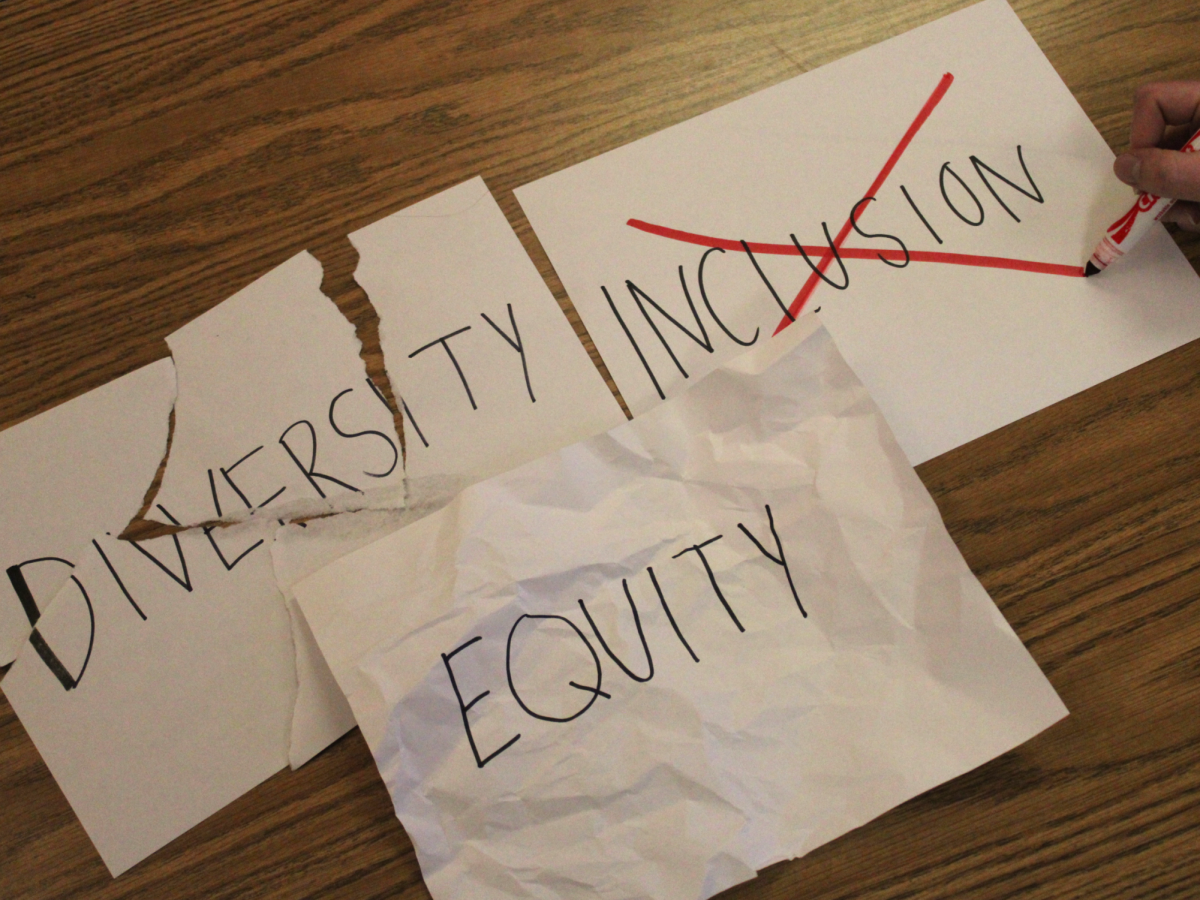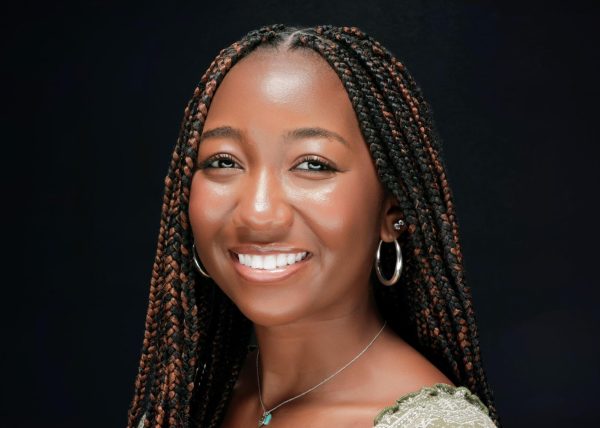As an adolescent, learning the fundamental ABCs helped growing students to build bridges between the limited vocabulary they possess, and the vast worlds that await them. Although the characters appear tiny in comparison to wide pages of butcher paper, learning these rudimentary letters helps to create an easier life for several students and provides kids with the language to express themselves. The alphabet grants individuals the tools to build community, forge relationships and foster empathy for the feelings of others, all through the intricacies of written and spoken language. Unfortunately, for another hot topic set of foundational letters prevalent in the modern news cycle — DEI — prominent forces stand firmly in the way of teaching audiences a basic understanding of their essential liberties.
DEI, which stands for Diversity, Equity and Inclusion, represents measures, policies and frameworks that seek to protect people of different identities and create workplaces and classrooms that uplift those varied experiences. Through DEI programs and offices, employees or students from myriad racial, sexual, religious, ability, socioeconomic or age backgrounds can feel like they belong in a workplace. By using diverse, equitable and inclusive hiring measures in the 21st century, modern organizations have seen significant success; DEI has shown the closest ties to a merit-based hiring system than other hiring models in previous years. However, since President Donald J. Trump and his administration launched their attack on DEI within the first six weeks of his second term, several Americans who felt the benefits of these programs now face potential losses of jobs, federal funding and safe spaces. Although DEI measures appear to only target marginalized communities, every U.S. citizen — whether now or later — will feel the impact of its absence and should do everything in their civic power to protect DEI.
After Trump utilized his Executive authority January 22 to roll back on former President Joe Biden’s DEI legislation, colleges, companies and conglomerates have opted to similarly dissolve their DEI efforts. Due to offices targeted at minority and queer students dissolving, the reduction of DEI has trickled down into the lives of several Americans already. The Trump Administration argues that DEI illegally discriminates against individuals in the hiring process, and combats the Constitution’s colorblind fairness before the law. In the memo published mere days after Trump’s Inauguration, he vows to restore dignity to the workplace and allow men and women’s competence and grit to take them far, without any aid from DEI initiatives. Fervently, the 47th President pushes for an America where merit earns opportunity, with no mind paid to a candidate’s race, gender or level of education.
Despite Trump’s messaging — and misguided inclusion of the 1964 Civil Rights Act — DEI measures truly ensured the presence of merit in admitting diverse candidates. Before the work protections of the 1960s, organizations discriminated against candidates of various racial or sexual backgrounds, opting to predominately hire straight, cisgender White men. Because of the Title VII clause in the 1964 Civil Rights Act, workplaces could no longer discriminate against candidates based on race, sex, national origin, religious affiliation or gender — a clear foundation for which modern DEI practices now settle. DEI presents the ultimate merit-based system by telling workplaces to see candidates for their resumes, and not for what makes them diverse. The practices further cultivate an even-handed workspace, where employees all own qualities of creativity, motivation and passion for their careers.
“DEI is important to communicate because it helps when people from different backgrounds come together and collaborate. Especially in schools, diversity can help prepare us for the real world and real-life situations. I think some misconceptions people have about DEI is that it is made to give jobs to people just because of their race, gender, or other factors. People seem to believe systems such as DEI were set up to give other people an edge when applying to jobs, colleges, etc. In reality, systems like DEI prevent people from discriminating against people of a different background from them,” magnet junior Kassidy Brown said.
DEI policies allow for a grander pool of individuals to receive access to jobs, scholarships and professional opportunities, as well as exposure to different career fields. Candidates of lower socioeconomic classes or educational experiences benefit significantly from DEI — the inclusion of various perspectives allows for nuanced ideas to enter into pivotal workspaces. For example, the company Progressive — which has consistently ranked number one in diversity measures for three years in a row according to Forbes — operates in the insurance industry, which impacts every American regardless of their background. The inclusion of various voices in such a pivotal part of the job sector can allow citizens to feel represented in crucial decisions, especially ones pertaining to their finances.
According to PeopleThriver, DEI has been shown to motivate employees and students in the workplace and grant them positive feelings towards heading out to work each day. The policies help to engage individuals; when employees feel satisfied by their employer’s commitment to creating inclusive spaces, they feel increasingly attached to their work and projects. By including DEI, leaders show that they care for the type of work environment they operate in, which can lead to a new sense of loyalty embedded into a staff. These policies also encourage employee retention and effectively drive toward positive results in employee performance.
DEI represents an essential part of the modern American experience; diversity exists in every corner of the U.S. and deserves protection from legislation and social norms. In light of the new attacks on DEI, young people can foster inclusive environments in their schools, clubs, jobs and community activities. By forging relationships with people who share dissimilar backgrounds, teenagers can better understand the importance of inclusivity once they enter the job market so that they can appreciate diversity and seek out various perspectives in their careers. Schools can also play a role in protecting the values of DEI; teachers can create a sense of safety in schools for young people by sponsoring clubs that uplift different cultures.
“Schools should be making sure student leadership reflects the student body, that history is being taught from multiple perspectives, and that students feel safe being themselves. Right now, a lot of DEI efforts feel like they are coming from students rather than the school itself. I have seen clubs like Black Student Union and Asian Student Association work hard to create inclusive spaces, but there is only so much they can do without real institutional support. As students keep pushing for change, I hope schools start listening and making real changes instead of just hosting an event and calling it progress. Students have more power than we think,” senior Kayden Williams said.
DEI exists to ensure that every American — regardless of where they live, how they look or who they worship — can explore their passions without fear of facing rejection. These policies do not seek to cater to one party over another, nor do they attempt to shut out individuals from opportunities; instead, DEI encourages fairness, which allows every citizen to feel safer heading to work and school. By protecting DEI, citizens create a diverse, equitable and inclusive future, not only for themselves but for every generation after.











